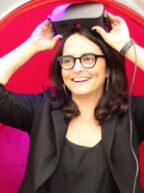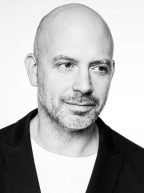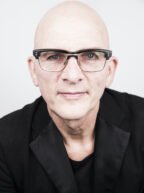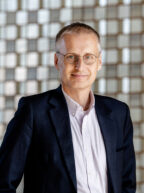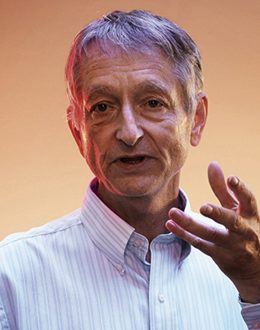
Geoffrey Hinton keynote speaker
- Digital Intelligence vs. Biological Intelligence
- Responsible AI Development
- The Future of AI
Geoffrey Hinton is the winner of the 2024 Nobel Prize in Physics for his pioneering work in artificial intelligence. Hinton has been called “the godfather of AI” and is considered one of the most important thought leaders on the emergence of AI and its implications for business and society. It was Hinton, in 2012, who created the technology that would become the foundation for the AI systems that are emerging as potential game-changers for business. But Hinton is not entirely a proponent of the rapid development of AI: Hinton’s view is that the technology offers tremendous potential benefits to humankind, but we are at an important inflection point where society needs to think hard about how to restrict the use of AI to avoid potential pitfalls.
Hinton received his PhD in Artificial Intelligence from the University of Edinburgh in 1978. After five years as a faculty member at Carnegie-Mellon he became a fellow of the Canadian Institute for Advanced Research and moved to the Department of Computer Science at the University of Toronto where he is now an emeritus professor. He has also held roles as a VP Engineering fellow at Google and Chief Scientific Adviser at the Vector Institute.
Geoffrey Hinton was one of the researchers who introduced the backpropagation algorithm and the first to use backpropagation for learning word embeddings. His other contributions to neural network research include Boltzmann machines, distributed representations, time-delay neural nets, mixtures of experts, variational learning and deep learning. His research group in Toronto made major breakthroughs in deep learning that revolutionized speech recognition and object classification.
Geoffrey Hinton is a fellow of the UK Royal Society and a foreign member of the US National Academy of Engineering and the American Academy of Arts and Sciences. His awards include the Nobel Prize in Physics (2024), the David E. Rumelhart prize, the IJCAI award for research excellence, the Killam prize for Engineering, the IEEE Frank Rosenblatt medal, the NSERC Herzberg Gold Medal, the IEEE James Clerk Maxwell Gold medal, the NEC C&C award, the BBVA award, the Honda Prize, and the Turing Award.
